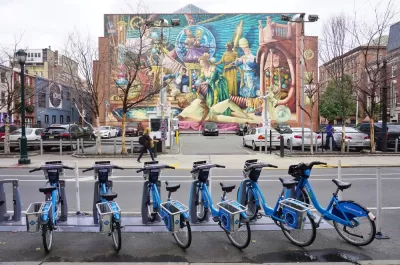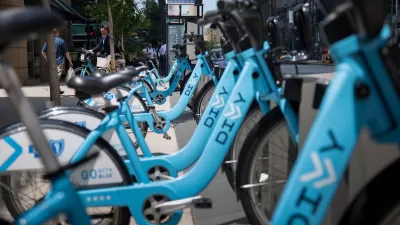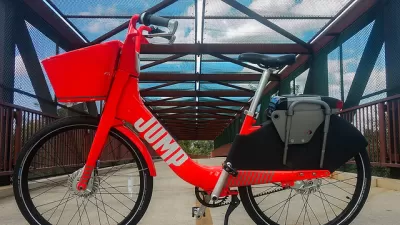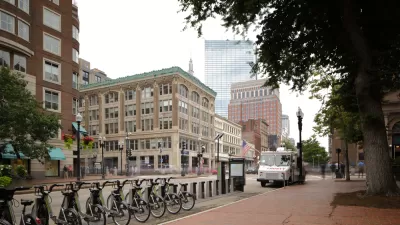As bikeshare operations have evolved and spread they've begun to differentiate, not just between docked and dockless, but also in terms of public or private ownership and electric and non-electric offerings.

Bikeshare operations have always varied from city to city, but as this mode of transit has become more popular, it's also become more diverse. "It’s easy to forget how young and unformed this transportation mode is: The first modern municipal bikeshare, Paris’s Velib, launched in 2007, and the first programs in the U.S. appeared in 2010," Alex Baca reports for CityLab.
Today there are a number of different types of bike share. One thing driving this differentiation is the variety of owners and funders of the services. "For example, D.C.’s Capital Bikeshare is publicly funded and publicly owned, but privately operated by Motivate, a firm that also operates Divvy in Chicago and Citibike in New York City. Divvy, like CaBi, is publicly funded, whereas Citibike is publicly owned but funded through sponsorships from Citibank and Mastercard," Baca writes.
The advent of dockless bikeshare changed the types of ownership again, in part because of the difference in equipment costs. "What users might not realize that the bikes themselves are also vastly cheaper, compared to traditional equipment. Each dockless bike costs its company about $200; traditional bikeshare bikes—the PBSC tanks, SoBi’s pre-Jump “smart bikes,” B-Cycle’s cruisers—are all north of $2,000," Baca writes.
If cities want to get the most out of this changing mobility service, they need to be careful how they craft their regulations, Baca argues. "Cities should fastidiously demand companies share their ridership data, and should hold operators to key performance indicators to keep bikes balanced and accessible." This would apply to e-bike, scooter and e-scooters as well.
FULL STORY: What Cities Need to Understand About Bikeshare Now

Planetizen Federal Action Tracker
A weekly monitor of how Trump’s orders and actions are impacting planners and planning in America.

Congressman Proposes Bill to Rename DC Metro “Trump Train”
The Make Autorail Great Again Act would withhold federal funding to the system until the Washington Metropolitan Area Transit Authority (WMATA), rebrands as the Washington Metropolitan Authority for Greater Access (WMAGA).

DARTSpace Platform Streamlines Dallas TOD Application Process
The Dallas transit agency hopes a shorter permitting timeline will boost transit-oriented development around rail stations.

Renters Now Outnumber Homeowners in Over 200 US Suburbs
High housing costs in city centers and the new-found flexibility offered by remote work are pushing more renters to suburban areas.

The Tiny, Adorable $7,000 Car Turning Japan Onto EVs
The single seat Mibot charges from a regular plug as quickly as an iPad, and is about half the price of an average EV.

Supreme Court Ruling in Pipeline Case Guts Federal Environmental Law
The decision limits the scope of a federal law that mandates extensive environmental impact reviews of energy, infrastructure, and transportation projects.
Urban Design for Planners 1: Software Tools
This six-course series explores essential urban design concepts using open source software and equips planners with the tools they need to participate fully in the urban design process.
Planning for Universal Design
Learn the tools for implementing Universal Design in planning regulations.
Municipality of Princeton
Roanoke Valley-Alleghany Regional Commission
City of Mt Shasta
City of Camden Redevelopment Agency
City of Astoria
Transportation Research & Education Center (TREC) at Portland State University
US High Speed Rail Association
City of Camden Redevelopment Agency
Municipality of Princeton (NJ)





























